TRACK 7: "Wolfboy"
Life could be a dream ... But what exactly is that growling shadow up near Fargo?
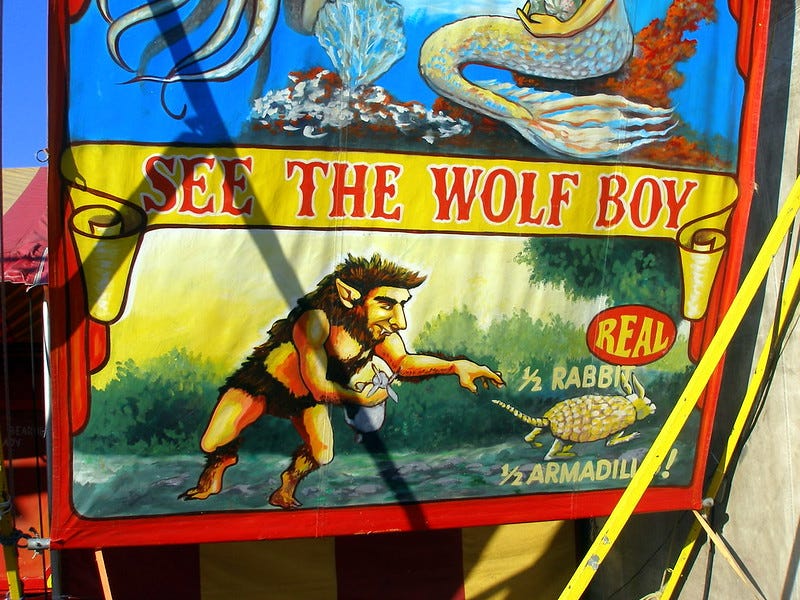
In Fargo, North Dakota at a carnival I met
The latest rage, he was in a cage
But he ain't nobody's pet
He's a wolfboy, he's a wolfboy
He's got them pointed ears, and a banana snout, and I heard his tiny cries
His furry little body shook and I looked him in the eyes
I saw that wolf boy, saw the wolfboy
(He looked at me with those big brown wolfy eyes and he said,)
"My daddy was a scientist, he mutated all my genes
My momma was a tattooed lady down in New Orleans.
I'm their wolfboy, their favorite wolfboy
In Baja California in a laetrile clinic I grew
I've been put on exhibition since the day that I turned two
See the wolfboy! The amazing wolfboy!”
My brother strolled up to the cage and called me to his side
He said, "I like your little buddy here, let's take him for a ride,
Let's steal the wolfboy, have some fun with that wolfboy."
Bridge
The lock was picked, we nabbed him quick, we didn't take much time
We hid him beneath my jacket in that roller coaster line
In the front car of the coaster, we were headed for the top
The wolfboy started struggling, we could not make him stop
Stop! Stop!
Stop that wolfboy, stop that wolfboy
My brother looked real sheepish as we got off of the ride
We looked for the wolfboy everywhere but did not find hair or hide
We lost that wolfboy! Couldn’t find no wolfboy
But there's a shadow up near Fargo
Some have sworn they've heard it growl
He took that dive, but he's still alive and now he's on the prowl
It's that wolfboy, it's that wolfboy.
copyright Sidhe Gorm Music (BMI)
(written 1980)
It was only a dream.
I was wandering around in a carnival tent looking at the various exhibits.
It might have been Fargo.
It might have been Albuquerque or Oklahoma City, where I’d actually seen freak shows at state fairs.
It might have been The Black Lodge of Twin Peaks, though this was well over a decade before that show aired.
It might have been The Sixth Dimension.
As I walked around the sprawling tent, from behind I heard a weak, pathetic, little voice trying to get my attention.
And there in a small cage I saw this furry creature who was billed as the “Wolfboy.”
But he didn’t look ferocious or dangerous. He seemed comical, almost cartoonish. It was only later when I realized who he reminded of:
Muskie, the prankster muskrat anti-hero of the old Deputy Dawg show, a cartoon I loved back in the 1960s as a child. Muskie, except with pointed ears
The Wolfboy began telling me his sad story. I don’t remember the exact details, but basically I recall, he was the product of some experiment of human genetics. His parents, apparently appalled by the creature they’d created, abandoned him and he ended up in this carnival freak show.
As Fred Blassie growled in his song “Pencil Neck Geek”:
"Sell it to the circus, what the heck …"
Wolfboy wasn’t asking me to spring him out of his carnival prison. I’m guessing he just needed someone to know his horrific circumstances. I felt his sadness. His pain became my own.
Then my brother Jack walked up.
Jack seemed to be completely uninterested about the Wolfboy’s heartbreaking history. He jokingly suggested we bust him out of his cage and take him for a ride on the roller coaster.
And though just a moment before I had been aching in total empathy with the Wolfboy, Jack’s stupid little joke seemed like the funniest thing I’d ever heard.
I started laughing.
And then I woke up.
It was only a dream …
I expect most of you have heard the song “Bob Dylan’s Dream” and maybe more of you have heard “Bob Dylan’s 115th Dream.” And maybe some true Dylanologists might even know something about the 113 dreams between those two.
The folkie scene from which Dylan sprang is responsible for at least a couple of well-known, oft-covered “dream” songs. There’s “Joe Hill,” originally a poem by Alfred Hayes with music by Earl Robinson speaking about an nocturnal encounter with the old Wobblie organizer.
While “Joe Hill” sounds like it might have been based on an actual dream about a dead man, the song “Last Night I Had the Strangest Dream,” (written in 1950 by folkie Ed McCurdy and popularized by The Weavers a few years later, and sung at Methodist Youth Fellowship gatherings when I was a kid in the late ‘60s and early ‘70s ) clearly was not. It was as neat and predictable as a toothpaste jingle.
But one of my favorite songwriters once told me that he’d actually dreamed songs.
Butch Hancock told me that the first time I interviewed him (for The Santa Fe Reporter) in 1983, during a break at a performance at Club West in Santa Fe.
And apparently this songwriting method is contagious. Butch’s guitarist that night, David Halley, (who went on to become a fine solo artist himself), had performed a tune that night called “Guy Harmonica & The Piranhas,” which, he said, came from a dream. In that dream Butch was supposed to have written it.
“Then I played for Butch,” Halley said, “and that night he dreamed he was writing it.
Hancock and Halley joked that they still argue about who holds the copyright to “Guy Harmonica.”
(With some help from my Lubbock pal, Paul Milosevich, I found an unreleased live recording of this song. However, Halley never responded to my email asking for permission to post. it. Not sure whether the email was valid so I won’t post it here.)
I believe that “Wolfboy” is the only song of mine that comes directly from Dreamland.
The image of the pathetic creature that looked like 3-D Muskie was clear in my head days after the dream – as was my shame of laughing at my brother’s cruel joke instead of sticking up for the poor creature.
So I suppose I wrote “Wolfboy” to try to deal with these feelings, maybe guilt over some cruelty I’d displayed in real life unrelated to carnivals or strange dream critters. Laughing and repeating Helen Keller jokes as a kid? Making fun of a special-ed kid in junior high? Who knows.
I still feel shame about stuff like that.
For the song I added details to the Wolfboy’s life story. I made his father a “scientist” (might it be one of the five scientists responsible for Cajun cloning in a previous song.)
Then I played with the couplet involving “new blue jeans” and “down in New Orleans” from “House of the Rising Sun.”
The line “My momma was a tattooed lady down in New Orleans” is one that soon became obsolete. When I first wrote the song, tattoos basically were for sailors. “Tattooed ladies,” at that point in history were mainly found in freak shows.
Why did I locate the carnival in Fargo, N.D., a city to which I’ve never been?
This actually was a wink to an old friend, Dale Watts (RIP).
Back in the early ‘70s our little gang of stoners used to get loaded and try to play the game Risk. Dale took the game even less seriously than the rest of us. He’d say things like, “O.K. I want to attack Fargo …” or “I’d better get my troops back to Fargo.” And thus, “Fargo” became a punchline for Dale even when we weren’t playing Risk.
As for the reference to laetrile clinics, the death of actor Steve McQueen, who was being treated in such a scammy facility in Mexico (laetrile treatment for cancer was illegal in the U.S.) troubled me. Maybe laetrile couldn’t save McQueen, but perhaps it could help create a future circus freak.
But the most import departure from the actual dream in the song is that I followed through on my brother’s suggestion in the dream to steal the Wolfboy and “take him for a ride” on the carnival’s roller coaster.
And this allowed the creature to liberate himself, jumping off of the roller coaster just as it was making its ascent.
By the final verse, he’s transformed into a growling shadow on the prowl up near Fargo, I assume seeking some kind of wolfy justice from those who had abused him.
I’m not the first to write a song about orphaned carnival freaks. There’s Randy Newman’s sardonic “Davy the Fat Boy”:
And, God bless The Residents, who did a whole concept album called Freak Show about a surreal collection of human oddities there for your gawking pleasure.
Here’s “Wanda the Worm Woman”:
Obviously, this 1990 album didn’t directly influence the creation of “Wolfboy.” But I’d like to think that whatever bizarre forces swirling around up there in the invisible collective creative stratosphere that influenced The Residents’ Freak Show also influenced “Wolfboy.”
Of course, my dream not only was set in a freak show, it dealt with a human “wolf.”
And the song that sprang from it, “Wolfboy,” for which I’d typically invite the audience to “howl along,” had much more in common with Warren Zevon’s “Werewolves of London” than anything by The Residents or Randy Newman.
Zevon’s song was released on his album Excitable Boy in 1978, a year or so before I wrote “Wolfboy.” But I first heard it back in 1975. David Lindley, who later would appear on Zevon albums, sang it at a Jackson Browne concert I saw in 1975 at Paolo Soleri amphitheater in Santa Fe.
Though I didn’t set out to model “Wolfboy” after “Werewolves of London,” looking back I realize there’s no way it wasn’t an influence.
(No, I won’t post a video for that song here. Everyone’s heard “Werewolves of London, no?)
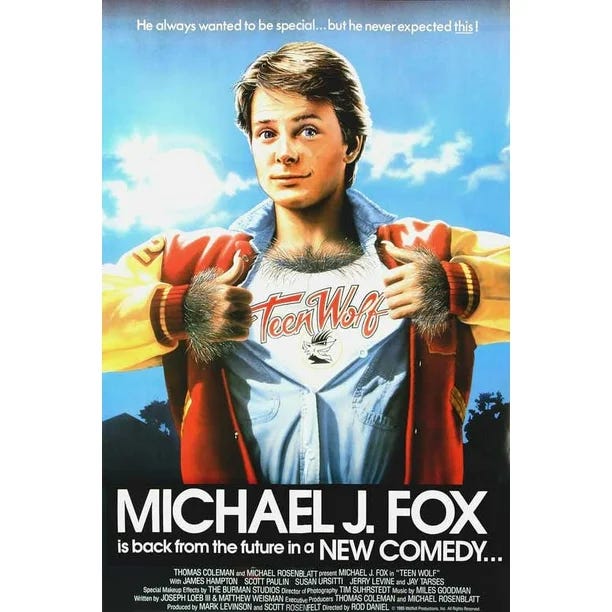
Actually, the melody and tempo of the song, if not the storyline, probably stems from Marty Robbins’ gunfighter ballad, “Five Brothers”:
The recording of the basic tracks of this song went smoothly. Jack strolled up to that mike and added some nice acoustic guitar licks in the instrumental section.
To give the song just a touch of the way it sounded when I performed it live, Alec Walling, Tom Dillon, my sister Mary and myself added howls and growls.
And Mary provided a credible bleat after the line “My brother looked real sheepish …” Before the recording, when I performed “Wolfboy” live, every now and then some wise guy would bleat at this juncture.
After Picnic Time for Potatoheads was released, the baaaaas came out nearly every time I performed the song.
Art imitating life became life imitating art, you might say.
So if you live near Fargo, beware the growling shadows.
Now enjoy my song:
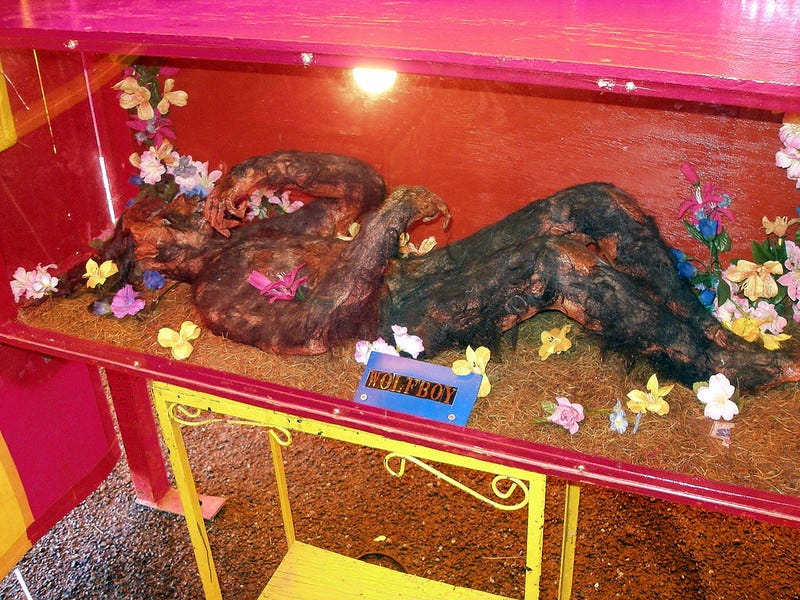
Credits:
Steve Terrell, lead vocals, acoustic rhythm guitar
Jack Clift: lead guitar, producer
Mike Roybal: bass
David Valdez: drums
The Wolfboy Howlers: Tom Dillon, Alec Walling, Mary Kyle (who also supplied The Lone Bleat)




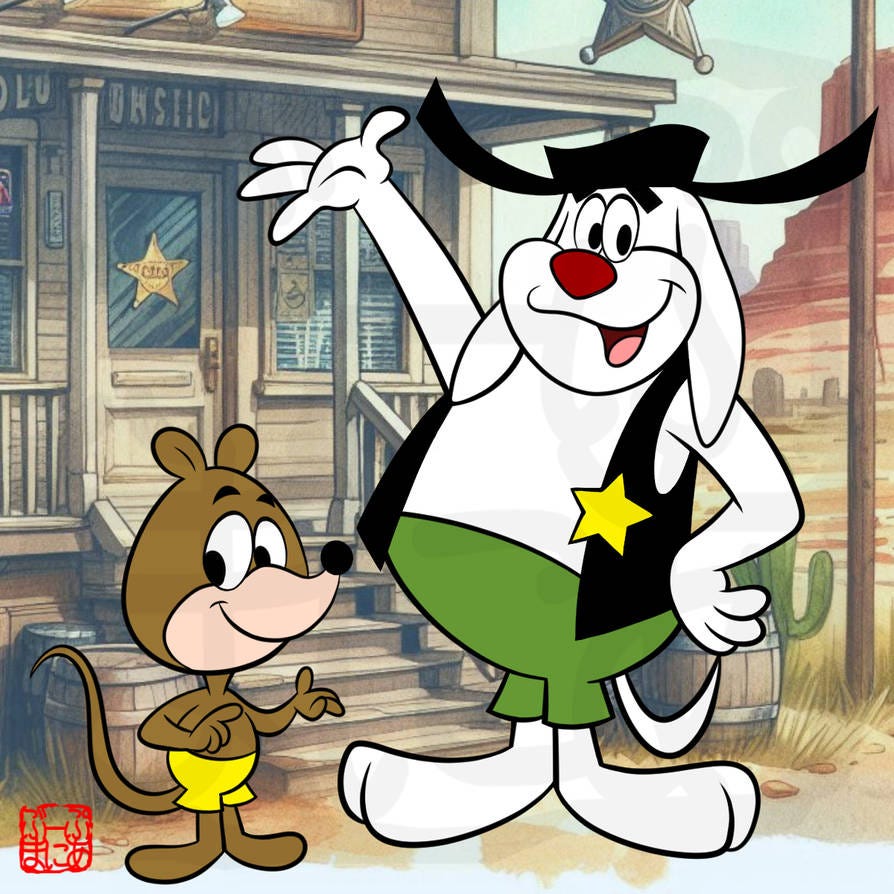
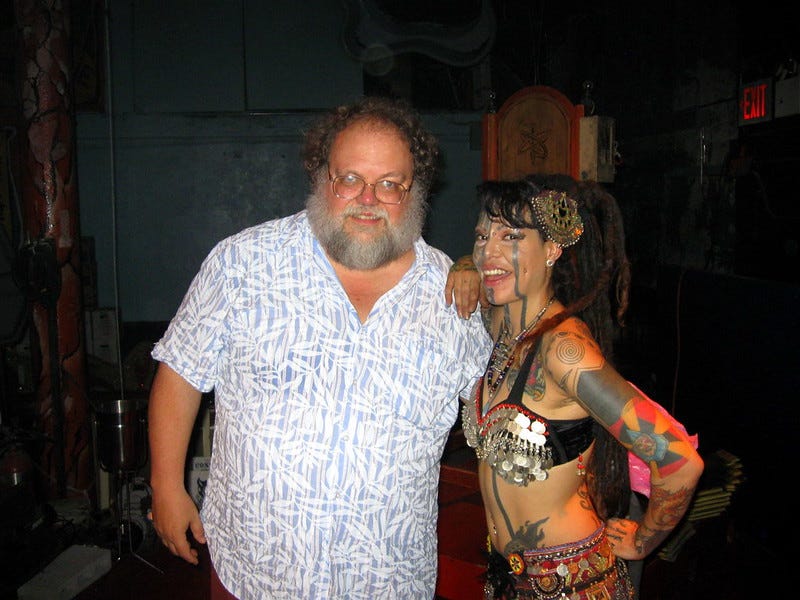
This is the first song I ever heard from you, sometime in the late '80s not long after I moved to Santa Fe. I think you were playing a Halloween gig someplace ... downtown, maybe. I thought it was wonderful.
Still do!
Your brain... I swear...